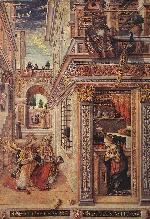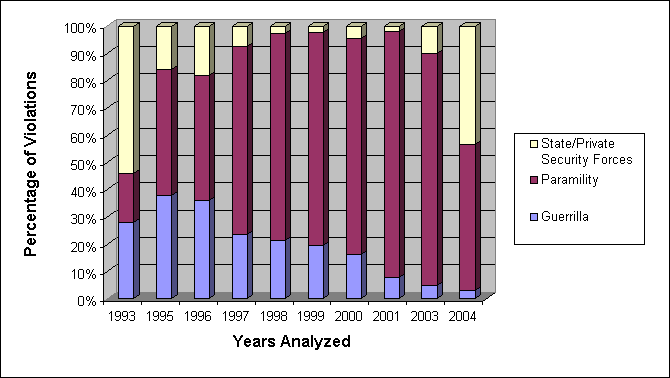New Politics, Vol. X, No. 4, Whole Number 40
Winter 2006 (New Politics, Vol. X, No. 4, Whole Number 40)
Getting Out of Iraq, Gilbert Achcar and Stephen R. Shalom
NP Symposium on Prisons
- Introduction, Mark Dow
- A Window for Reform, Judith Greene
- America’s “Relentless Judicial Machine,” Andrew Hammel
- Escaping into Prison with Fox, Lorna A. Rhodes
- A Haven for Refugees in Pennsylvania, James Harbison
- Monitoring Women and Children in U.S. Prisons, Bonnie Kerness
- Urgency of the Incarcerated, Buzz Alexander and Suzanne Gothard
- Voices from Prison, Abira Ashfaq
Special Section on Religion and Politics
- There is Good News and Bad News, Harvey Cox
- Introductory Note to Onfray, Doug Ireland
- Jean Meslier and “The Gentle Inclination of Nature,” Michel Onfray
- After Wojtyla, Christopher Rhoades Dykema
- Class Struggle: A Poem, Robert Kelly
Roundtable on Immigration and African Americans
Stephen Steinberg’s “Immigration, African Americans and Race Discourse” in our last issue of New Politics (#39) elicited several responses. Here they are with Steinberg’s rejoinder. Steinberg’s article, together with a different set of responses and a reply from Steinberg, also appears in the Winter issue of New Labor Forum. We urge readers to follow this debate in both venues. – EDS.
- The Intra-Immigrant Dilemma, Alan Aja
- Mobilizing Immigrants and Blacks, Peter Drucker
- Alliances Needed, Ron Hayduk
- Finger Pointing Toward “Freedom Now!” Michael Hirsch
- Another American Dilemma, Gilbert Jonas
- Reintroducing the Black/White Divide in Racial Discourse, Gregory D. Squires
- Response, Stephen Steinberg
Comparative Politics
- The (People’s) Summit of the Americas, Lois Weiner
- Human Rights and the Colombian Government, James J. Brittain
- Zimbabwe: Violent Oppression Continues, Michael Watermeyer
- Tony Blair’s Education Policy, Mary Compton
- The “Decade of Roma Inclusion,” Bill Templer
James Weinstein: An Obituary, Stanley Aronowitz
Reviews
- Stephen R. Shalom, Economic Justice and Democracy by Robin Hahnel
- Milton Fisk, The Philosopher and His Poor, by Jacques Rancière
- Michael Wreszin, The Misuse of History After the Fall of Communism, edited by Ellen Schrecker
- Sean Cain, Argentina: Hope in Hard Times, film by Melissa Young and Mark Dworkin
- Kurt Jacobsen, Downfall, film by Oliver Hirschbiegel
- Words and Pictures: Gary Martin on Steve Brodner
In this issue:
By: Gilbert Achcar, Stephen R. Shalom
[Editors' Note: The article "On John Murtha's Position" is reprinted here from ZNet, Nov. 21, 2005, followed by a postscript written especially for New Politics.]
On John Murtha's Position
By: Abira Ashfaq
In 1979, there were seventy women in prisons all over Pakistan. By 1988, this figure was six thousand. The reason — the Hudood Ordinances. Promulgated in 1979 by military dictator Zia-ul-Huq in an effort to Islamize the laws of the country, these have been the subject of much controversy and debate.
By: Harvey Cox
Once upon a time, just a few decades back, culture critics were confidently predicting the demise — or a least the decline — of religion. Technology, literacy, education, science would take their inevitable toll. Religion would survive, perhaps, in small enclaves, family rituals, and folk festivals. But religion would never be a factor in the public sector, the "political realm." The dead would bury the dead.
By: Doug Ireland
Michel Onfray, the brightest star among the younger French philosophers, is a brilliant prodigy, a gifted and prolific author who, at the age of only 46, has already written 30 books.
By: Michel Onfray
translated by Marvin Mandell
I. Of a Certain Jean Meslier
By: Christopher Rhoades Dykema
The spectacle of adoration following the death of Karol Wojtyla, also known as Pope John Paul the Second — maudlin and baleful as it was — was also time wasted by the American left. What incremental analysis it fostered came from the ranks of the faithful, not of the irreverent.
By: Robert Kelly

This is the Renaissance,
everything is for sale. The poor man
is greedy (that's why he's poor –
does Ficino tell us this, or Bruno?),
ill-dressed, his hair a mess.
Yet this transaction is directly underneath
the glory of God.
These characters (dubious seller,
too-comfortable doubtful buyer)
are closer to the Divine Light
than Mary is. What does this mean?
By: Alan Aja
"Black people should do more to help themselves. . . . We worked for everything we have. They should too." (Cuban-American Miami resident)
"[Whites] are racists by tradition and they at least know that what they're doing is not quite right . . . Cubans don't even think there is anything wrong with it. That is the way they've always related, period." (African-American Miami resident)*
By: Peter Drucker
As Stephen Steinberg says, "There is nothing progressive about flooding the lower echelons of the labor market with desperate immigrants who depress wages . . . It is also problematic when the nation imports workers to fill higher echelons of the job pyramid. . . ." Progressives should support elements of his policy agenda such as vigorously enforcing anti-discrimination laws, expanding affirmative action and creating a job corps for minority youth.
By: Ron Hayduk
Steve Steinberg highlights a critical issue at an important time. Steinberg is right to draw our attention to the impact of immigration on the project of progressive politics, particularly as it relates to the plight of African Americans.
By: Michael Hirsch
I imagine Stephen Steinberg astride a muscular white horse, whip in one hand, pistol in the other, riding to scourge the American left of its racial amnesia. Or he's a biblical prophet, imbued with the divine spirit and setting the highest standards for the community. Sometimes the need for such a seer is self-evident, and sometimes Steinberg fairly meets it. Sometimes.
By: Gilbert Jonas
Ever since America's negro slaves were emancipated after the Civil War, our nation's generous immigration policies have worked against the interests and advancement of African Americans.
By: Gregory D. Squires
Does it matter that most of the problems that disproportionately affect black Americans don't stem from racism — or at any rate, modern day racism? . . . These issues just aren't particularly black anymore.
William Raspberry[1]
By: Stephen Steinberg
I knew when I wrote my piece that I was walking through a minefield of controversy, first of all because I challenge the dominant discourse on immigration and call into question many of the orthodoxies of a new generation of immigration scholars. I therefore came prepared to engage in verbal battle with outraged critics whose scholarship has been called into question. Alas, they did not show up at the table!
By: Lois Weiner
On November 2-5, as two dozen heads of state gathered in Mar del Plata, Argentina for a hemispheric summit to negotiate trade agreements, thousands of global justice activists, I among them, participated in a concurrent "People's Summit" ("cumbre de los pueblos") or "counter-summit" ("contracumbre"). The official summit meetings were moved to Mar del Plata, a seaside resort which is a five-hour bus or train trip from Buenos Aires, to deter mass protests.
By: Bill Templer
Empire is characterized by the close proximity of extremely unequal populations, which creates a situation of permanent social danger and requires the powerful apparatuses of the society of control to ensure separation and guarantee the new management of social space.[1]
By: James J. Brittain

The Colombian civil war, similar to other Latin American conflicts over the past 50 years, has had a large portion of non-combatants mortally affected by the horrors of conflict. However, those killed or injured in Colombia are not indirect results of the discord but are in-themselves strategic military targets (Stokes, 2005; Lernoux, 1982). The reasoning behind invoking this aggression against the unarmed Colombian populace is due in part to the ever-increasing strength of the primary insurgent movement within the country.
review
By: Stephen R. Shalom
Robin Hahnel has written an important book that will be of real value to all libertarian socialists (a term he uses very broadly to cover anyone who wants to replace capitalism with a system characterized by the direct control of workers and consumers over their own economic activities).



